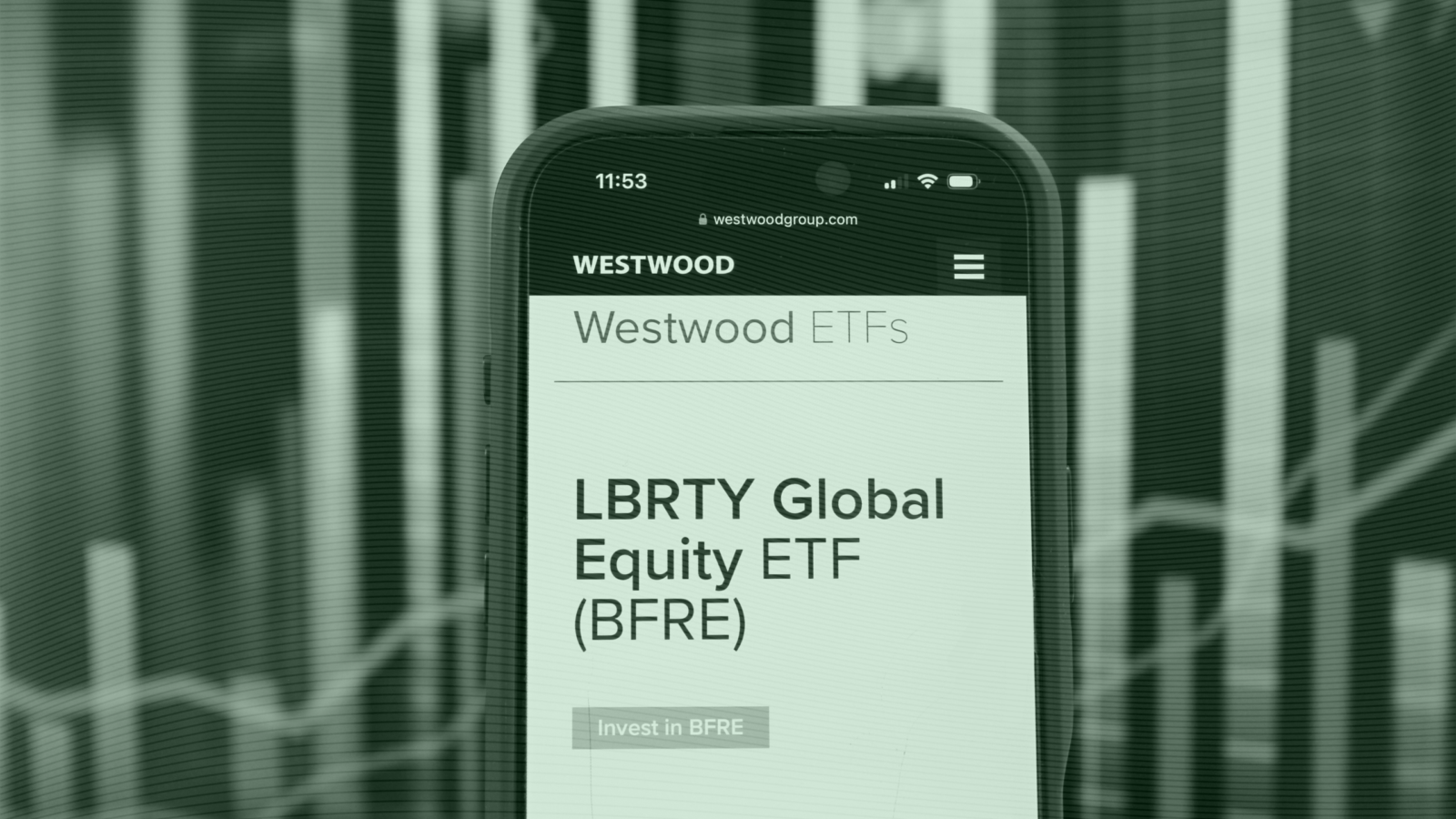Good morning.
Will you accept this rose?
Advisors may have mountains of money to manage and tremendous client satisfaction ratings, but only a select few employees have the distinction of being on long-running franchise “The Bachelor.” Juliana Pasquarosa, a client service associate at Boston-based Winthrop Wealth, is one of them after accepting the highly coveted rose from bachelor Grant Ellis last week in the season finale. Since the dramatic rose reveal, the two got engaged in the Dominican Republic. Aww, you guys.
From what we understand, Pasquarosa hasn’t quit her day job, despite her newfound fame; and Ellis, a New Jersey native and former Dominican Republic pro basketball player who currently works as a day trader, is relocating to the Boston area to be with her. You gotta love a semi-scripted, reality-show happy ending.
What LPL’s Massive $2.7B Commonwealth Deal Means for Advisors

LPL Financial is known for big deals. They may have outdone themselves this time.
The largest independent broker-dealer in the US announced Monday that it will acquire Commonwealth Financial Network in a $2.7 billion all-cash deal, marking one of its biggest acquisitions ever in an increasingly competitive independent broker-dealer industry. The purchase, expected to close in the second half of this year, will add roughly 2,900 independent advisors managing some $285 billion in assets to LPL’s ranks. The deal’s size far outstrips the firm’s $800 million purchase of Atria Wealth Solutions, which closed in October.
Industry consolidation is making big networks progressively bigger, leaving less room for smaller firms to breathe. “The name of the game is scale,” said Frank LaRosa, CEO of Elite Consulting Partners, adding that smaller firms today struggle to handle heavy regulatory oversight and come up with the capital needed for technology upgrades.
Kind of a Big Deal
A deal of this size, especially an all-cash one, made waves in the industry this week (and late last week as at least two industry publications first reported “chatter” about a prospective acquisition). LaRosa expects to see more transactions similar to the Commonwealth deal this year, and added that advisors shouldn’t get too comfortable with their current firms even when leadership tells them “we are not selling” or “we would never sell to a huge firm.”
“We’re not exactly in a monopoly situation, but there’s a reason why monopolies are illegal,” LaRosa told Advisor Upside, adding that more of these types of deals could limit not only consumer choice but advisor choice. “It takes some of their power away,” he said.
Are We Clear? One of LPLs biggest advantages when it comes to acquiring firms is that it’s self-clearing, LaRosa said, meaning it doesn’t rely on a third party to execute trades and have custody of client assets. Ultimately, it’s cheaper and faster for advisors to start trading once they join the LPL fold. Self-clearing has helped LPL reach its massive size, with 29,000 financial advisors managing $1.7 trillion in client assets:
- In 2024, LPL’s recruited assets reached a record of $149 billion, up approximately 86% from the previous year, according to the company.
- In just the last three months of 2024, LPL added 5,000 advisors to its network through its acquisition of Atria and partnership with Prudential.
“To compete with LPL, more firms like Cetera, Osaic, and others need to seriously consider the idea of being self-clearing,” LaRosa said.
Tired Of Empty Promises From Your Broker-Dealer?
Too often, advisors are promised the world — then left without the support, flexibility, or independence they were counting on.
At Cambridge, actions speak louder than words. The independent financial solutions firm understands the challenges advisors face — balancing business growth while seeking a partner that truly values their voice. Many advisors struggle to find a broker-dealer that collaborates and aligns with their long-term goals.
It’s not just business — it’s a partnership designed to support advisors on their own terms.
CFP Board May Ease Rules on Prior Bankruptcy, Alcohol, Drug Charges
The CFP Board is looking to let bygones be bygones.
The organization that oversees the Certified Financial Planner designation is considering easing the rules regarding when applicants must have a formal hearing with the organization’s Disciplinary and Ethics Commission. The potential changes would relate to past bankruptcies, as well as alcohol and drug offenses. The group opened the discussion up to public comment just last week, but the potential rule changes are already garnering support among some advisors.
“Preventing folks from ever being able to use the [CFP title] is a bad precedent,” said Tom Balcom, a CFP with 1650 Wealth Management in Fort Lauderdale, Florida. “I am a big believer that if the advisor’s actions did not adversely impact their clients, then there should be leniency.”
Willing to Look Past It
The modifications to the CFP Board’s Procedural Rules seek to lighten the load for the DEC, as well as prospective advisors whose spotted backgrounds may not be pertinent to their current professional lives. A hearing with the DEC may not be necessary if:
- An applicant filed for personal or professional bankruptcy within the last 10 years and was not providing financial planning services at the time; or if the bankruptcy was filed at least 15 years ago.
- An applicant with multiple alcohol- or drug-related misdemeanors received their latest conviction at least seven years ago.
The public comment period is slated to end April 25. “CFP Board is committed to upholding the integrity of CFP certification while ensuring a fair and efficient review process for candidates,” CFP Board CEO Kevin Keller said in a statement.
- Wealth Management EDGE: The leading event for advisor growth. Register today!
- ETF Flows Hit $1.1T — discover what’s driving the surge.
Westwood ETF Says it Pays to Be Democratic

Democracy may be good not only for governments, but also for clients’ returns.
Last week, Westwood Holdings Group launched its LBRTY Global Equity ETF (BFRE), which the company is calling a first-of-its-kind fund that seeks to limit both direct and indirect exposure to authoritarian regimes including China, Russia, Turkey, and others, while maintaining broad market exposure. The fund tracks the LBRTY All World Equity Index from asset manager TOBAM, which claims that investors will have better outcomes if they ditch stocks exposed to the negative financial impacts of authoritarian nations’ wars, social unrest, waste, and corruption. Westwood, headquartered in Dallas, managed roughly $17.6 billion at the end of last year.
The ETF comes at a time when Chinese equities have been on a tear, with the MSCI China index up roughly 15% year-to-date, and advisors are considering how much they should expose their clients to the Middle Kingdom. “There is no lasting prosperity without democratic institutions,” TOBAM CEO Yves Choueifaty said during a press event at the New York Stock Exchange on Thursday.
Extra Upside
- Stuck in the SMIDdle. Strategists say small- to mid-cap stocks are deeply undervalued.
- Rocking Robin. Robinhood rolls out wealth management services with a $50 minimum.
- When Promises Fall Flat, Advisors Look Back. Hear the story of an advisor who left Cambridge, only to return a few years later, coming back to a firm that treated him and his clients like family. Listen to his story and learn more about Cambridge, an independent financial solutions firm, which continues to earn advisors’ trust.*
* Partner
Advisor Upside is edited by Sean Allocca. You can find him on LinkedIn.
Advisor Upside is a publication of The Daily Upside. For any questions or comments, feel free to contact us at advisor@thedailyupside.com.

